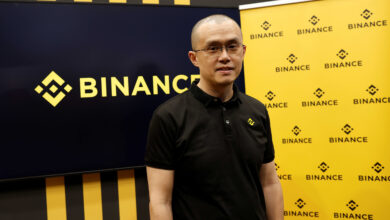Worldcoin’s Construction: Navigating the Challenges of Decentralized Proof-of-Personhood

Vitalik’s opinion on Worldcoin highlights major issues with its construction, including privacy concerns with the registry of iris scans, accessibility challenges due to specialized hardware, centralization risks related to the Orb device, and security vulnerabilities like phone hacking and 3D-printed fake people. He acknowledges that these issues are specific to Worldcoin’s choices but also inherent to biometric proof-of-personhood systems in general.
Privacy Concerns
Worldcoin’s construction involves scanning users’ irises and storing iris scan hashes in a public database. While the system uses specialized hardware and cryptographic techniques to protect user privacy, there are still potential privacy risks.
An adversary could forcibly or secretly scan a person’s iris and check it against the database to see if they have a World ID, potentially compromising their anonymity. Additionally, the iris scan hashes could potentially reveal some medical data, such as sex, ethnicity, or medical conditions.
One of the most significant privacy risks is the possibility of linking each action taken by a user to their real-world identity. This data linkage can be extensive and poses a threat to users’ privacy, potentially exposing their activities and preferences to third parties.
Despite Worldcoin’s efforts to use zero-knowledge proof technology to anonymize user actions, the underlying presence of a public registry of biometric scans creates inherent privacy vulnerabilities.
Accessibility Issues
Worldcoin’s reliance on specialized hardware called “the Orb” for iris scanning poses a concern. Currently, there are only a few hundred Orbs in existence, making it challenging for everyone worldwide to access them easily.
The limited number of Orbs, combined with their physical deployment in specific locations, creates geographical barriers. People residing in remote or underprivileged areas may not have easy access to an Orb, further exacerbating the accessibility issue. This geographical limitation disproportionately affects individuals in less developed regions and restricts their ability to participate in the system.
Unlike proof-of-personhood systems that can be accessed through smartphones, the need for specific physical devices hinders inclusivity, particularly for populations with limited resources or technological infrastructure.
Moreover, accessing an Orb might involve certain costs, such as travel expenses or fees to use the specialized hardware. These costs can be prohibitive for individuals with financial constraints, reducing the accessibility of the proof-of-personhood system to a broader population.
While Worldcoin’s team aims to distribute more Orbs and create a decentralized governance system over time, the accessibility concern remains significant, especially in comparison to other proof-of-personhood solutions that can be accessed using only a smartphone.
Centralization Risks
Centralization concerns are crucial aspects of constructing biometric proof-of-personhood systems like Worldcoin. These concerns can be divided into several categories. Firstly, at the top-level governance layer, there is a risk of centralization as the initial creation and distribution of Orbs are managed by the Worldcoin Foundation. This concentration of control in the hands of a single entity could lead to issues related to governance manipulation and undue influence.
Secondly, hardware centralization is a potential risk as only one organization, Tools for Humanity, is currently producing Orbs. While the project aims to encourage other organizations to create Orbs and transition to a more decentralized manufacturing process, there remains a possibility of one manufacturer dominating the market, thus centralizing the hardware supply chain.
Moreover, reliance on proprietary and closed-source verification algorithms could introduce centralization risks, as users have limited visibility into the verification process, giving operators significant control over the system.
Mitigating centralization concerns is vital for the long-term success of biometric proof-of-personhood systems. Implementing transparent and open-source verification algorithms enables independent user verification. Encouraging a diverse and decentralized hardware supply chain is crucial to avoid centralization in hardware production. Additionally, a well-governed transition to decentralized governance is critical to ensure the system’s evolution without reliance on specific stakeholders.
Security Issues
Worldcoin faces security challenges, similar to other proof-of-personhood systems. These include the risk of 3D-printed fake people that can pass the Orb’s scan, the possibility of selling or renting IDs to other users, the potential for phone hacking to steal a user’s key, and the risk of government coercion to gain access to millions of IDs.
While Worldcoin’s use of specialized hardware like the Orb makes it harder to fake compared to simple video-based systems, there is still a risk that advanced AI technologies could eventually create convincing fake scans. If attackers successfully generate fake identities, they can gain access to multiple accounts, potentially undermining the uniqueness of the system.
The possibility of selling or renting IDs to other users raises concerns about identity fraud and abuse of the system. If someone else controls an ID, they may use it for malicious activities or participate in multiple identities, potentially diluting the integrity and purpose of the proof-of-personhood system.
Another security risk arises from the vulnerability of users’ phones. If a user’s phone gets hacked, the attacker could potentially gain access to the private key associated with their World ID. This compromises the individual’s control over their identity, enabling malicious actors to manipulate their account or engage in unauthorized activities.
Finally, coercive governments may force citizens to undergo iris scans with government-owned QR codes, granting unauthorized access to citizens’ World IDs for surveillance and control purposes. This vulnerability could result in significant security and privacy breaches without means for individuals to resist or protect their identities.
Addressing these security issues is critical to maintain the system’s integrity and prevent fraud or abuse.
Conclusion
While Worldcoin and other proof-of-personhood systems aim to offer decentralized solutions to identity verification, they must navigate various trade-offs between privacy, accessibility, decentralization, and security. Each approach comes with its own set of challenges and benefits, and careful consideration is required to strike the right balance while ensuring a robust and user-friendly system.





